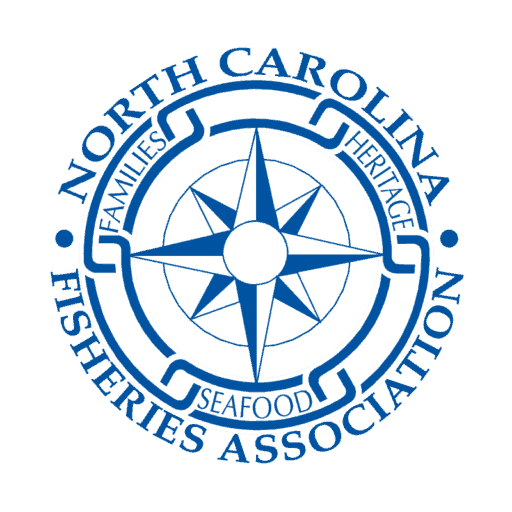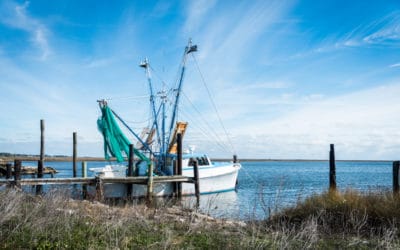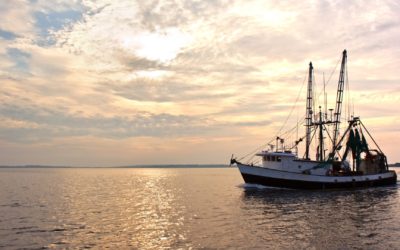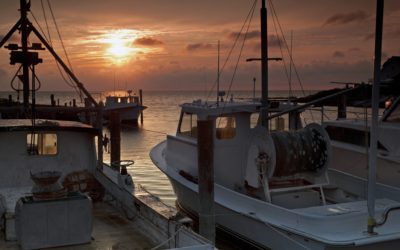In February of 2019 the Coastal Conservation Association (CCA) produced and widely circulated a chart titled “Expected November 1, 2019 Recreational Fish Limits by State” comparing North Carolinas bag limits to those in 8 other States from Virginia to Texas.
The chart compared the recreational bag limits of Striped Bass, Speckled Trout, Flounder and Red Drum and predicted that by Nov 1, 2019 NC anglers would only be allowed to harvest 4 speckled Trout, 1 Red Drum, 0 Flounder and 0 Striped Bass which was far less than was predicted for the other 8 states.
Absent from the chart was any explanation for why N. C’s recreational limits were so low except for a question which asked “Can you guess the only state that still allows commercial gillnetting and shrimp trawling in its bays and sounds?” implying that commercial fishermen are somehow responsible. Can this be true? Can simply banning gillnetting and shrimp trawling in our estuaries as other states have done mean more fish and increased bag limits for NC anglers?
To answer these questions lets first look at the accuracy of the CCA’s predictions. In the case of NC, the predicted bag limits were somewhat accurate as NC had closed the recreational harvest of Flounder statewide and Striped Bass in the Central Management Area, but they failed to include the 2 Striped Bass anglers were allowed to harvest in the Albemarle Sound Management Area in their chart. With the exception of this little white lie the CCA’s predictions for NC were pretty close. But what about the other states? Has the removal of commercial gears guaranteed an endless bounty for anglers in the other 8 states? The answer is a resounding NO!
By May 11, 2019 Florida had closed the recreational harvest of Red Drum and Speckled Trout for almost the entire state and when it reopens in June of 2020 Florida anglers will have bag limits for these two species almost identical to North Carolinas current bag limits.
Like Florida, Alabama’s recreational bag limits had also decreased in an attempt to end overfishing in both the Southern Flounder and Speckled Trout stocks. By Nov 1, 2019 their Speckled Trout bag limit had dropped from 10 fish per day to 6 and flounder harvest was closed during the month of November reopening in December with a bag limit decrease from 10 fish per day to 5.
Now you may think that anglers in Texas, the birthplace of the CCA, would be spared but like the CCA predictions you would be wrong!
Effective September 1, 2019 the Speckled Trout bag limit decreased from 10 fish per day to 5 and once again the CCA told a little white lie as the recreational Flounder bag limit is 2 fish per day in November not the 5 fish shown on the chart. (The Flounder bag limit is 5 fish per day Dec 1- Oct 31) with the exception of Virginia’s Striped Bass bag limits the other states not mentioned above had no changes as of Nov 1, 2019 but that may change soon.
South Carolina, Georgia and Florida may soon be making changes in their recreational Flounder fisheries to end overfishing on the Southern Flounder stock and Louisiana is currently exploring options to end overfishing in their recreational Speckled Trout fishery which has been overfished since 2014.
While it’s obvious that the CCA’s assertion that banning commercial gears will assure liberal bag limits is absolutely without merit, it’s hard to ignore the fact that even with the recent changes in other states NC’s combined bag limits for all 4 species is still significantly lower than the other states. But does it have to be? Once again, the answer is absolutely no!
If you were to take the CCA’s chart at face value you would assume they were upset about the recreational bag limits in N.C, the truth is not once in 30 years has the CCA of NC ever advocated for higher recreational bag limits. In fact, recreational bag limits for Red Drum and Speckled Trout (Two of the species compared on their chart) could easily have been raised in N.C and we have discussed doing so several times but the changes were opposed by the CCA.
In the case of Red Drum N.C. could adopt the more liberal bag limits seen in the other states on the chart and still be in compliance with the ASMFC but with support from the CCA N.C chose the most restrictive bag limits available.
A similar situation occurred in the management of Speckled Trout. When the 2015 stock assessment determined overfishing was not occurring, the Marine Fisheries Commission could have changed the Trout regulations but chose to maintain the 4 fish bag limit implemented to rebuild an overfished stock at the recommendation of the CCA.
By now you may be asking yourself why would an organization advocate for extremely restrictive recreational bag limits in one breath and then condemn our state for adopting these very same bag limits with the next breath? The answer is simple the CCA feeds off the turmoil created when our fisheries are overregulated.
Simply put- happy anglers don’t buy into the propaganda, they don’t sign petitions or send prewritten letters and they certainly won’t donate money to the CCA!
The truth is with the exception of Flounder, recreational catches of the species compared on the CCA chart have been increasing in N.C. but anglers are forced to throw back most of the fish they catch as size limits have increased and bag limits decreased.
By now it’s clear that NC has some of the most restrictive recreational bag limits in the country but I bet you didn’t know we also have the strictest statutes for managing our coastal fisheries of any state in the U.S.
It was these statutes that forced our state to adopt the extreme management measures that closed the harvest of Southern Flounder. While it’s true that the Flounder fishery is overfished in N.C., overfishing is also occurring in South Carolina, Georgia, and Florida but unlike NC these states have no statutory requirements to take action.
If these states choose to reduce their harvest of Southern Flounder in the future, they will have the flexibility to do as little or as much as they feel is appropriate, a luxury we don’t have in N.C.
If you are questioning why NC would adopt statutes that require such draconian measures maybe that’s a question you should ask the CCA of N.C., because once again they actively lobbied to assure North Carolina had the most restrictive coastal fisheries in the Country.
And now you know why!
Glenn Skinner-NCFA Executive Director

Related Articles
A Word From The Chairman
Related Articles Stay Up to Date With The Latest News & Updates Join Our Newsletter
A Word From Jerry Schill
Related ArticlesStay Up to Date With The Latest News & UpdatesJoin Our Newsletter
An Update From Glenn
Related Articles Stay Up to Date With The Latest News & Updates Join Our Newsletter



